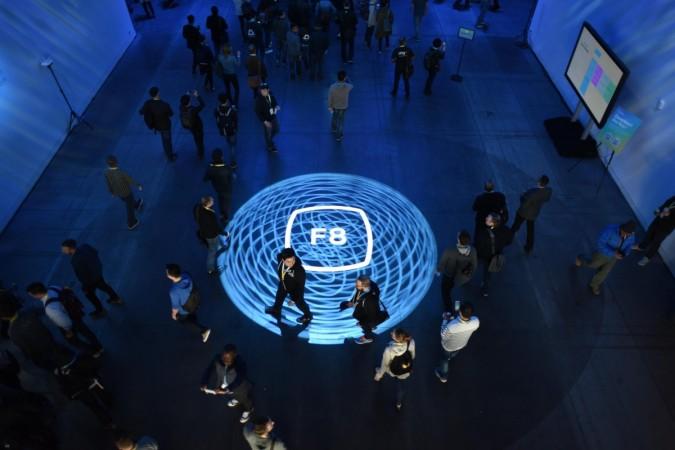
Facebook's is on the road to building something incredible that will define the future of technology as we know it today. At the company's annual developer conference, F8, in San Jose, California, Facebook CEO Mark Zuckerberg revealed plans to explore the virtual side of the world through AR lenses.
The young-billionaire has set his mind to building something on the lines of affordable augmented reality and the most logical step would be to start with creating software.
The first thing that come to people's minds when discussing Augmented Reality or AR are those fun and cool Snapchat filters and the phenomenal sensation Pokemon Go. But what Facebook has in store is bigger than that – at least that's what it seems like from the announcement made at the F8 conference on Tuesday.
"You want to play a board game? You snap your fingers, and here's the board game," Zuckerberg said during the F8 presentation pointing to the coffee table. He further explained that if users want to watch TV, "You don't need a physical hardware TV, you buy a one-dollar app 'TV' and put it on the wall," Re/code reported.

The mixing of two worlds, virtual and real, however, isn't going to be that simple. In Zuckerberg's own words, "I think everyone would basically agree that we do not have the science or technology today to build the AR glasses that we want."
But that doesn't mean it is impossible. Give it a few years, and we might actually be playing around with AR like we use smartphones.
Facebook's big plan is to make AR commonplace and the only way to do it is by creating software that transforms an ordinary smartphone into an augmented reality gadget. If everything goes as planned, users will be able to hold their phones in front of their faces to see virtual objects superimposed on real world surroundings.
Imagining this isn't too difficult as Pokemon Go has showed the world what AR actually looks and feels like. But what Facebook has in mind is bigger than that, said Zuckerberg, referring to the popular AR-based game and apps like Snapchat as "primitive".
"And people aren't using primitive tools because they prefer primitive tools. They're using primitive tools because we're still early on the journey to creating better tools."
Zuckerberg's AR plans include opening up the AR platform to developers from around the world so they can create what they want. Facebook is calling its platform as the "Camera Effects Platform", which is being lauinched with just six developer partners.

Soon, you'll be able to see AR features and lenses integrated into the Facebook in-app camera. As and when more developers join the program, there will be more stuff on the lines of AR to explore.
While sharing insights on what the future of tech looks like, Zuckerberg noted that the project is still a work in progress.
"It's going to take a while to develop. Your experience won't change dramatically overnight," he said. "Over time, I think this is going to be a really important technology that really changes how we use our phones and eventually all technology."
With so much talk surrounding the software, Zuckerberg had little to share on the hardware side of things. Well, using smartphones as the way to make AR commercially useful is a great plan, but it comes at the cost of awkwardness.
If only Facebook could build an affordable AR device for consumers, there might be many takers. We do not want another Google Glass failure in the making.

With the help of Facebook's Oculus team, there's a possibility we can expect something in the future. If there's Facebook AR glasses in tow, one may be able to explore new places without actually going there, or simply checking out your friend's new apartment with a live virtual tour.
Zuckerberg did clarify that the AR hardware will be different from VR products even though the line between the two techs seems thin at the moment.
"I think eventually there are going to be people who want a VR product and there are going to be people who want an AR product. I would bet the AR one will be bigger if it can be developed in a good way."
You can watch the complete Facebook F8 conference below:









!['Had denied Housefull franchise as they wanted me to wear a bikini': Tia Bajpai on turning down bold scripts [Exclusive]](https://data1.ibtimes.co.in/en/full/806605/had-denied-housefull-franchise-they-wanted-me-wear-bikini-tia-bajpai-turning-down-bold.png?w=220&h=138)



